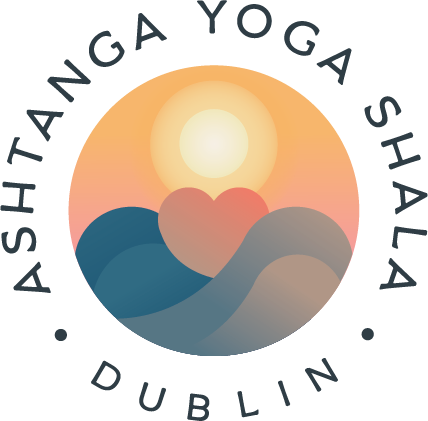YouTube Yoga
YouTube is amazing isn't it?
I've learned so much from watching things on there; how to hang a painting properly, change the brake-light bulb on my car, replace the fill-valve on my toilet, do a Turkish get-up, put a baby into a sling, replace the strap on my watch, get my dog to come back to me when I call him, and probably a hundred other things that I previously would have had to get somebody to teach me, or do for me, or else go to the library and hope they had a book on it. We all take it for granted now but it's a pretty incredible resource. And it's only 16 years old. When I finished college it didn't even exist!
As yoga students, we've been given access to a library of resources that, twenty years ago was incomprehensible. There are so many videos on there with tips, tricks, and advice on how to do almost anything you can think of.
In one way, we have a huge advantage as yoga students in this day and age. We have access to probably tens of thousands of teachers in our own homes.
But there is a problem and I'm just going to say it straight out.
Most of the famous yoga teachers on YouTube and Instagram are freaks.
That's all. That's the end of the moon day news for this week. I'll leave you with that.
No, of course, I need to explain that statement.
There's an amazing (to me at least) TED talk by David Epstein about how and why world records in athletics and other sports have been dropping consistently since modern records began. And there's a very very interesting section of the talk (about 8 minutes in) in which he discusses how athletes physiques have become so specialised for their own particular sports. For example, swimming legend Michael Phelps (who is 6 foot, 4 inches) and long-distance running legend Hicham El Guerrouj (who is 5 foot, 9 inches) both have the same length legs. Long legs and a short torso are an advantage in long-distance running whereas short legs and a long torso are an advantage in swimming.
That is to say that certain people are more naturally physically suited to doing certain things than others. And this is where the problem lies with yoga celebrities.
When we see Michael Phelps swimming, Usain Bolt running, Michael Jordan jumping, Cristiano Ronaldo dribbling, or Brian O'Driscoll spinning out of a tackle, we don't sit there and think that if we practice for a few years we'll be just as good as they are. We know that they're exceptional athletes and that people like that only come along once in a generation.
But when we see people doing yoga on YouTube or Instagram we think that we're supposed to be able to do what they're doing and, if we can't, we're 'bad at yoga'.
Yoga practitioners who can do extraordinary things with their bodies are naturally the ones who will become well known on visual platforms like YouTube or Instagram and it is certainly inspiring to see what some people are capable of. But when you watch that video of Pattabhi Jois teaching Chuck Miller, Maty Ezraty, Eddie Stern, Tim Miller, Richard Freeman and Karen Haberman it should feel more like you're watching the Olympic Games rather than some sort of template for your own practice. The way those guys do the primary series is something that we can aspire to but expecting ourselves to be able to get to that level will, for almost all of us, lead to frustration, and maybe even injury.
We have all been blessed with the bodies that we have. They are all different, and they are capable of different things. We should try our best to fulfil our own personal potential while absorbing lessons from as many masters as we can. We will never become somebody else and we will never be able to exactly replicate everything another person can do. We all have our own individual strengths, weaknesses, fears, traumas, history. Yoga can help with all of that but not if we're trying to force ourselves into something that our body is not adapted for.
So go slowly.
Enjoy the postures.
Enjoy the breath most of all.
And be happy that we have found this ashtanga yoga practice. It should be used as a tool to improve our lives, not as a gauge of our self worth.
